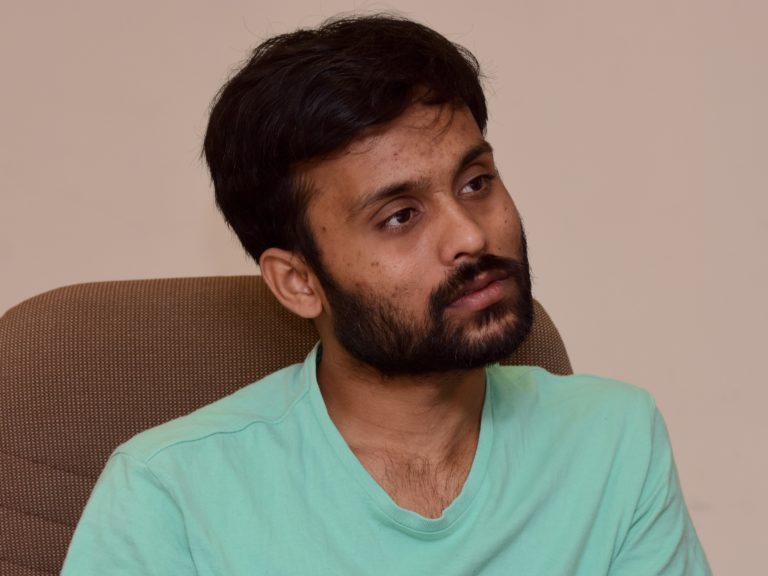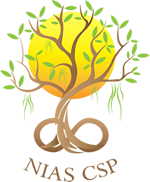
Rakesh Kumar
Rakesh Kumar is currently working as a Research Associate, Consciousness Studies Programme, School of Humanities, National Institute of Advanced Studies (NIAS), Indian Institute of Science Campus, Bengaluru. (July 2018 – Present). He is also pursuing his PhD under the guidance of Prof. Sangeetha Menon, Dean, School of Humanities, Professor & Head, NIAS Consciousness Studies Programme, National Institute of Advanced Studies, Bangalore. His PhD topic is “Indigenous Knowledge of Healing Among the Tribes of Nilambur Valley, Kerala: A Study of Cross-Cultural Landscape Across Ethnic Boundaries”. His research interests include indigenous knowledge, transitions and indigenous health (especially hunter-gatherers), dynamic system modelling: human-landscape interactions, ethnography and cognitive archaeology.
Educational Background:
- Ph.D. (Ongoing) Thesis-“Indigenous Knowledge of Healing Among the Tribes of Nilambur Valley, Kerala: A Study of Cross-Cultural Landscape Across Ethnic Boundaries”. Dec’18-Current
- Thesis Advisor: Prof. Sangeetha Menon, Dean, School of Humanities, Professor & Head, NIAS Consciousness Studies Programme, NIAS, IISc Campus.
- Thesis Co-advisor: Prof. Vasant S. Shinde, Director, Rakhigarhi Archaeological Research Project, Former Founding Director General National Maritime Heritage Complex, Former Vice-Chancellor, Deccan College University.
- Master of Arts (Ancient Indian History Culture and Archaeology) Deccan College Post Graduate and Research Institute, Pune, India. Aug’16–Aug’18
- Thesis– Material Culture and Symbolism in Black Magic: A case study of Black Magic in Mayong, Assam, India
- Thesis Advisor: Prof. Vasant S. Shinde, Director, Rakhigarhi Archaeological Research Project, Former Founding Director General National Maritime Heritage Complex, Former Vice-Chancellor, Deccan College University.
- Thesis Co-advisor: Dr. Shahida Ansari, Associate Professor, Deccan College Post Graduate and Research Institute, Pune
- Bachelor of Arts (Ancient Indian History Culture and Archaeology) Banaras Hindu University (BHU), Varanasi, India. Aug’13–July’16
Indigenous knowledge implies inter-generational passed-on understanding and skills developed by the community. The indigenous approach to healing (IAH) is one such example of Indigenous knowledge which consists of a set of common values, beliefs, worldviews, experiences and practices. It is conventionally having a long temporal history and spatial association. The vertical transfer of Indigenous knowledge from one generation to another generation doesn’t imply that it is unconditionally static rather it is dynamic in a way because the knowledge modifies itself as a response to change or transition in community lifestyle and environment. It inspires us to examine how the various kinds of transitions like development led transitions, market induced transitions and geo-cultural transition effects the health and healthcare knowledge system of selected indigenous communities (who are traditionally nomadic, family level foragers and hunters) of Nilambur valley, Kerala. The second part of the research focuses on understating the function and systemic structure of the social network for effetely delivering health care to the community members and suggest a developmental model to the policymakers to not only conserve and preserve the indigenous knowledge of healing but also to integrate it in the ongoing nationwide healthcare programme.
- Menon, S., M. Meera, K. Rakesh 2019. Beyond Body–Mind: Self-narratives and Consciousness, Psychological Studies, Springer (Nature) https://doi.org/10.1007/s12646-019-00519-w
Forthcoming
- Kumar, Rakesh. 2020. “Being a Hunter-gatherer in the 21st Century: Health Knowledge System, Problems and Paradoxes.” SocArXiv. June 30. https://doi:10.31235/osf.io/5u9r7.
- Kumar, Rakesh, “Why Is There a Need for an Alternative Onto-Epistemic Understanding of Health for Contemporary Hunter-Gatherers?”, Archaeopress, Oxford.
- Rakesh Kumar, “Why is There a Need for an Alternative Onto-Epistemic Understanding of Health for Contemporary Hunter-Gatherers?”, 4th Cambridge Student Annual Conference (CASA-4), 15 January 2021 (online).
- Rakesh Kumar, “Being a Hunter-gatherer in the 21st Century”, 7th International Congress of Society of South Asian Archaeology organized by Department of History and Archaeology, University of Sri Jayewardhanapura, Nugegoda, Sri Lanka in collaboration with Swami Vivekananda Cultural Centre High Commission of India, Colombo and Sri Lanka National Commission for UNESCO, 19 September 2020 (online).
- Reading Glass Lecture, Topic: “History and Fiction: The Tale of Two Evolutions”, Speaker: Rakesh Kumar, Coordinators: Harikrishnan N. B., Meera Kumar Menon, Rakesh Kumar. Date: 01 March 2019. National Institute of Advanced Studies, IISc Campus Bangalore.
- Reading Glass Lecture, Topic: “Can We Use History for Healing?”. Speakers: Rakesh Kumar, Amrutha M. K. Coordinators: Harikrishnan N. B. , Meera Kumar Menon, Rakesh Kumar. Date: 07 February 2020. National Institute of Advanced Studies, IISc Campus Bangalore.
- “Who We Were to Who We Are: Bridging the Gap of Existence ” for the course Quintessence of Being: Examining Existence and Experience, Primary Instructor: Sangeetha Menon, Course Coordinator: Meera Kumar Menon. Date: 27 August 2020, National Institute of Advanced Studies, IISc Campus Bangalore. (Online).
- Friday Lecture, Topic: A Wide-Eyed Man at the Capital of Black Magic (Aabhichara) Speaker: Rakesh Kumar, Chairperson: Meera Kumar Menon, Coordinators: Niharika Sharma and Meera Kumar Menon, Date: 25 September 2020. National Institute of Advanced Studies, IISc Campus Bangalore.
- Reading Glass Lecture, Topic: “Indigenous ways of knowing: looking back and asking the knowledge questions”. Speakers: Rakesh Kumar, Amrutha M. K. Coordinators: Harikrishnan N. B., and Amrutha MK, Date: 29 October 2021. National Institute of Advanced Studies, IISc Campus Bangalore.

